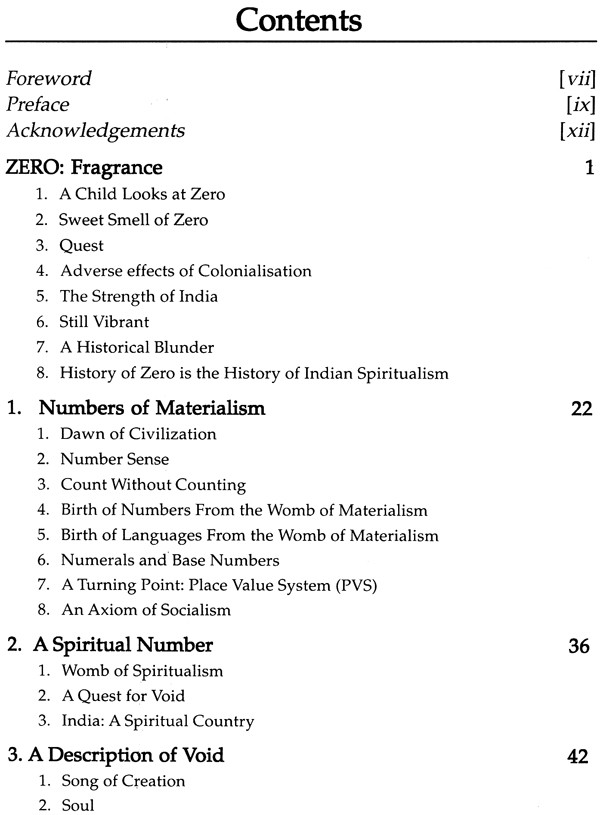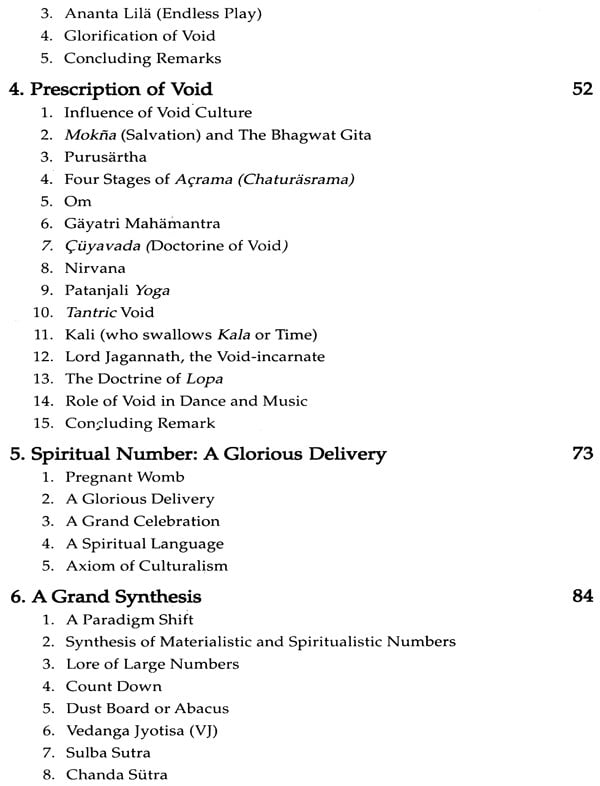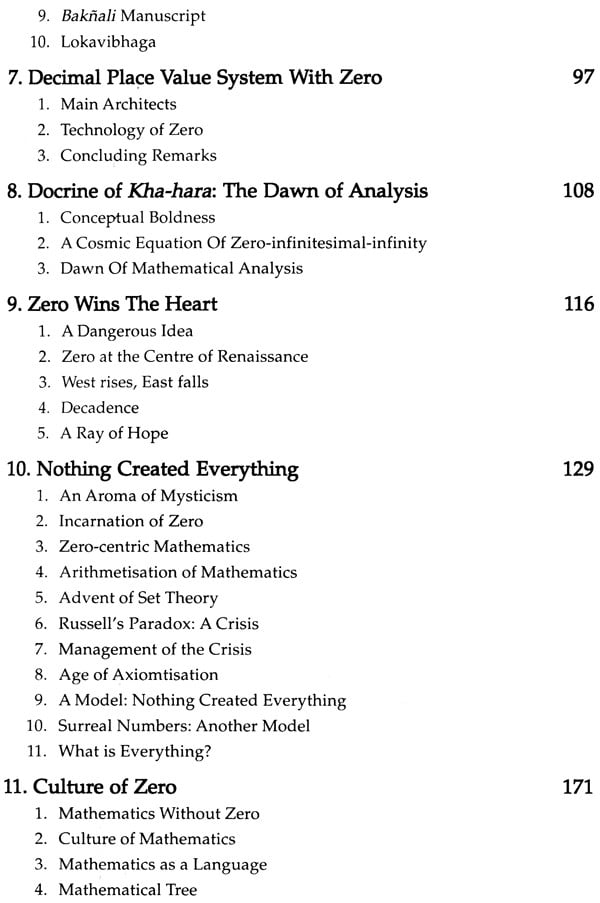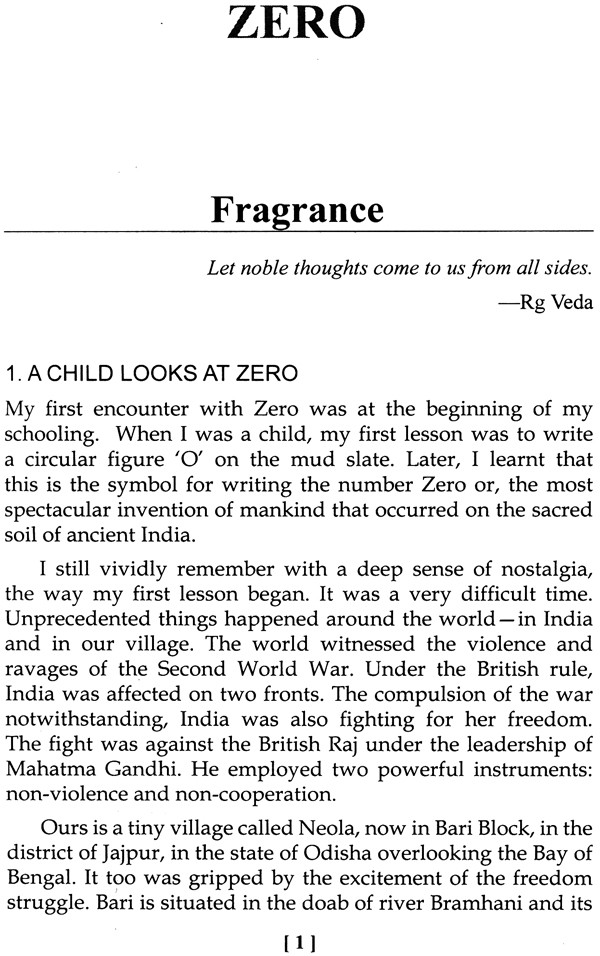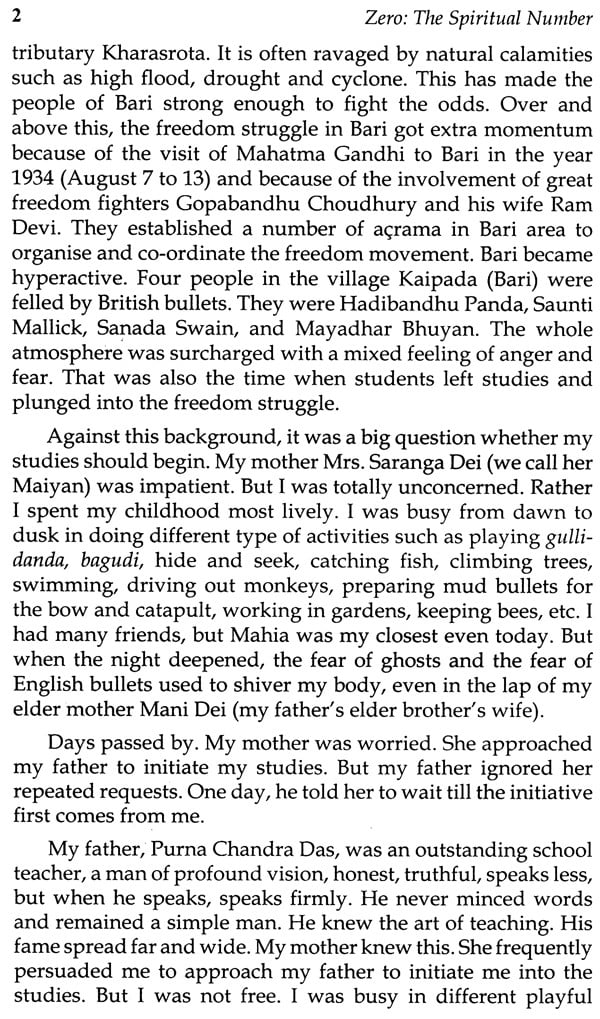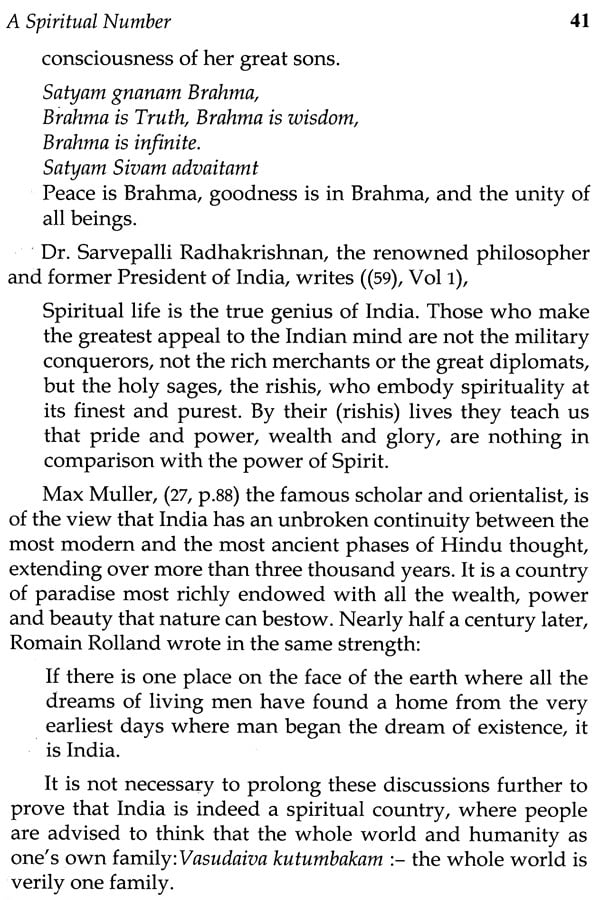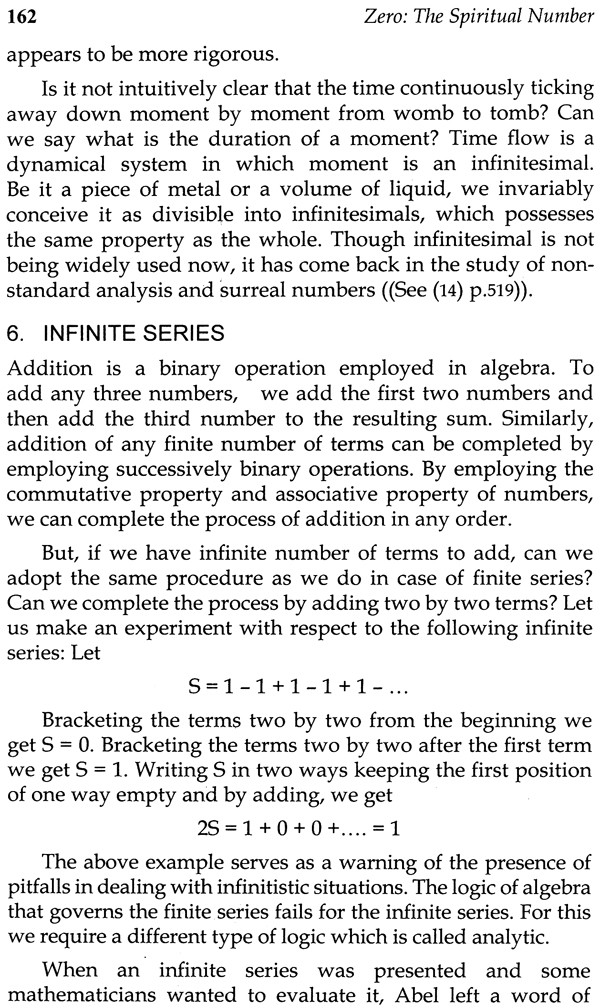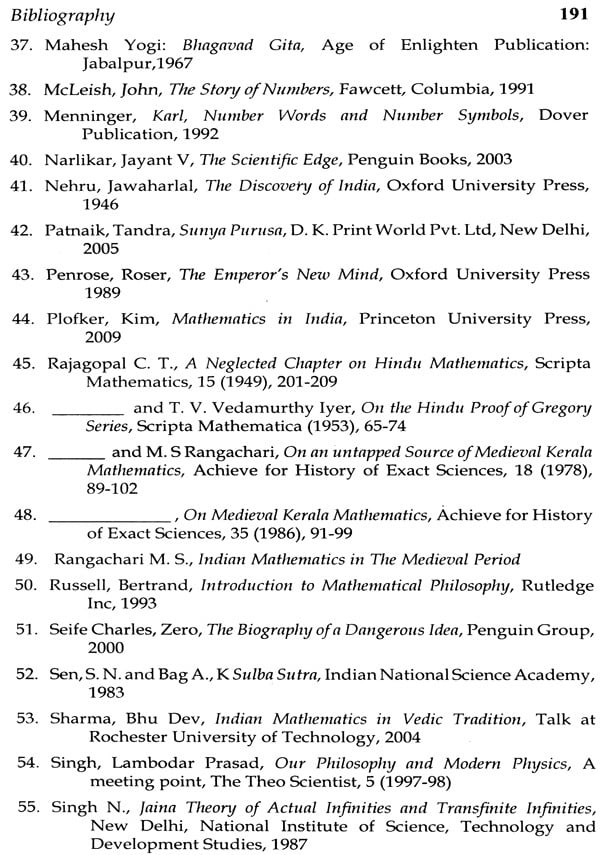
Zero The Spiritual Number
Book Specification
| Item Code: | NBZ669 |
| Author: | Gokulananda Das |
| Publisher: | National Paperbacks, New Delhi |
| Language: | English |
| Edition: | 2019 |
| ISBN: | 9789388658454 |
| Pages: | 204 |
| Cover: | HARDCOVER |
| Other Details | 9.00 X 6.00 inch |
| Weight | 390 gm |
Book Description
The author enjoys looking beyond the numbers and sharing his perceptions with others. The number Zero has always fascinated him, as he could perceive in it the physical and metaphysical content equally relevant for evolution of human civilization.
The author seeks to drive home the point, by this Endeavour, that there should prevail the universal brotherhood of man on the planet, at least in the pursuit of Science and Mathematics.
Professor Das, in his four decades old career in teaching, has served the institutions like, G.M. College, Jabalpur, Delhi University, Jabalpur University and Utkal University, finally culminating in holding the rein of administration as the Vice Chancellor of Utkal University from 1998 to 2001.
Professor Das has authored several books, text books as well as popular books in mathematics besides writing articles in vernacular language, Odia, for the benefit of the linguistic community to which he belongs.
As a professional colleague working in a corner of mathematics, I had known him as one of the greatest classical analysts of our times. But I was not aware of his deep philosophical insight relating to the origin of mathematics. I had once requested him to give a lecture on 'Zero', having come to know about his thinking on the subject. I was not, however, aware of his writing on the subject, a series of articles in the native language and more so his pondering on the subject for quite some years now. My relevance to this book is, perhaps, my having been influenced to take interest in the history of Indian mathematics by my mentor, the late c.T. Raja opal, who exposed the discovery of infinite series, is at least limited to the sine, cosine and arc tan functions. He further traced the derivation of the arc tan series to a performer of a Vedic sacrifice looking at the circular roof-top of his yajnasala and the rafters therein.
Professor Das has a similar insight in tracing the origin of 'Zero' as nothingness, sunya, and infinitesimal, suksbme, to Vedic aphorisms. Though Professor Das does not claim having proved that the concept of 'Zero' should have arisen from the Vedic civilization, his thesis that only this civilization could have contributed to the concept is irrefutable.
The book is written in a free-flowing style and will certainly Provide very interesting material to specialists and non-specialists alike in mathematics and philosophy.
We have, in the same vein, vindicated that discoveries of void and its glorification, ~hich is characterized by spiritualism, must have provided a fertile womb for the birth of number Zero. We, therefore, term Zero as the spiritual number. This is done with a view to impress upon the readers, not acquainted with India's past, that there was then no other void-friendly cultural environment more appropriate for the germination of Zero. Without appreciating the salient features of this part of Indian philosophy and spiritualism, it is not easy to grasp the process of evolution of Zero, which it has passed through.
A grand synthesis of spiritualism and materialism, in the history of human civilization, is an epoch-making event, and a paradigm shift to shape the outlook of human kind for the better. Only the harmonious blending of spiritualism and materialism, of void with non-void, leads us to an exalted way of living. It allows us to live and let live. Whenever there are instances of materialism corning in contradiction to spiritualism, it is found that materialism fails to deliver the goods.
An epoch-making synthesis of materialistic numbers and the spiritual number is embodied in the development of Place Value System with Zero (PVSZ), which is the best available method to express very small and very large numbers easily.
There are many occasions when West confronts East. One such occasion is when Aristotelian ideas on bivalent logic confront with Buddhist's ideas of fuzzy logic or the logic of multivalence invented about 300 years before Aristotle. The second occasion is when Indian concept of Zero and Place Value System tried its entry to the Western world in spite of initial resistance. The third occasion is when Eastern spiritualism came in conflict with Western materialism.
Book's Contents and Sample Pages
